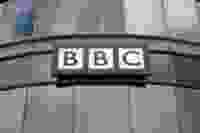
The BBC is not fit for purpose – but that doesn’t mean it should disappear
With the prospect of major changes to the BBC over the next few years signalled by Nadine Dorries late last week, our editor Joshua Dawson writes that while changes are absolutely necessary, the BBC should not necessarily disappear altogether.
Whether or not you feel it was a way of shifting some focus away from the ongoing Partygate scandal, Nadine Dorries' tweet on Sunday was a clear indication of the Government's feeling towards the BBC. Freezing the licence fee, and ultimately its funding, for two years is a confirmation of its desire to see the corporation at the very least enact reform that Tony Davie has been promising since he became Director-General.
For a long time, the BBC has faced calls from all sides to take a long hard look at itself in the mirror. Questions around the corporation's impartiality crop up almost daily, and the proliferation of channels and streaming services from which we can consume media, be it TV programmes or radio, call into question the need for a licence fee at all.
Programmes like Newsnight are symptomatic of the BBC's problems. An ability to allow fair and impartial questioning of those who appear on the programme has been absent for years. Presenters like Kirsty Wark take great delight in asking questions of government representatives and instead of allowing them to answer, they butt in and ask another. Of course, those who disagree with this will say that it is the job of media like Newsnight to question those in power, and that such questioning would happen whether Conservative or Labour.
But this simply isn't true. The BBC, and in particular those who work in its newsroom, have not-so-subtly been aligning themselves with the contemporary viewpoints of the left for a number of years, and it will require a great amount of effort to extricate themselves from its grip and return to reporting news.
On value for money, the BBC has taken great care to show how it has reduced the salaries of some of its most prominent presenters such as Gary Lineker. However, it is behind the scenes where questions must be asked. Take the tech consumer programme Click. It sent a team out to the Consumer Electronics Show (CES) in Las Vegas earlier this month. Given this is normally the biggest tech expo in the world, you might say 'fair enough', yet COVID cases reduced the numbers of companies attending to far below normal levels. Was there really the need to spend money on flights, accommodation, private tests and the rest, when at most one person could do if they were desperate? I'm sure the limited viewership of Click would understand this time round – a global pandemic is a pretty solid excuse.
Despite the above criticism (and the rest), the BBC still holds a certain place in my heart. The BBC does still produce great content on occasion, and having grown up before streaming really took off, I look back fondly at the entertainment it provided at a weekend. Unfortunately, it has reached the point where most have had enough and we have to be blunt in saying it needs to change.
Straightforward changes such as getting rid of Newsnight would be a good start. It has become a symbol with which the BBC can be accused of impartiality, and its removal would be just as symbolic; it would indicate the BBC recognises where it needs to change and is willing to take steps to do so.
If it can show that it is willing to change, it may stand the corporation in far better stead when it comes to discussions over its funding. The BBC's unique place in British culture stems from the fact it is funded by the taxpayer, for the taxpayer. If it were to adopt a subscription method of funding à la Netflix, it may be able to carry on producing content, but then it would simply become another subscription service, and it would not longer be the same British icon that is recognised the world over. Many backbenchers, while happy to voice their discontent with the BBC, do not want to launch an all-out assault on it, and may well be happy to stop short of funding reform if they can see changes taking place.
Ultimately, Nadine Dorries' licence free freeze will last until 2024 and until then, the BBC must show that it is still worthy of the unique spot it has held since the licence fee was introduced in 1946. It must not sit around and complain that the freeze is damaging the corporation – they have done a good job of that themselves.













